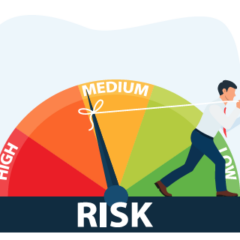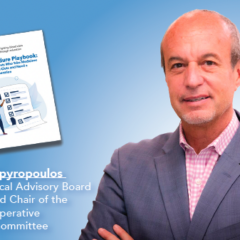Last updated on
COVID-19 Vaccine Position Statement
NATF COVID-19 Vaccine Position Statement
The North American Thrombosis Forum (NATF) strongly recommends that all eligible individuals get vaccinated and boosted against COVID-19, including:
- People who have had a blood clot in the past
- People with genetic clotting disorders (such as factor V Leiden) or who have a family history of blood clots
- People who take anticoagulation (sometimes called blood thinners)
- People who take antiplatelet medications (aspirin, clopidogrel, ticagrelor)
- People who have bleeding disorders such as hemophilias
Vaccination is the key to protecting our individual health and limiting the spread of COVID-19 in our communities. It’s also the best tool we have to prevent blood clots and other vascular complications associated with COVID-19, such as pulmonary embolism (PE), deep vein thrombosis (DVT), and stroke, as well as the chronic symptoms known as “long COVID,” which can persist indefinitely and be debilitating.
What We Know:
- Infectious diseases spread quickly within communities that have high numbers of unvaccinated people. As more people become vaccinated and boosted, disease transmission from person to person declines, which is known as herd immunity. When we achieve herd immunity, we protect the most vulnerable people in our society, including the elderly and those who have weakened immune systems.
- The available COVID-19 vaccines and boosters are safe and effective. The U.S. Food and Drug Administration (FDA) has stringent standards that vaccine developers must meet. All vaccines that are distributed in the U.S. are rigorously tested in large clinical trials and continue to be monitored. [Individuals are encouraged to contact their healthcare provider if they have questions or concerns about any of the available vaccines.]
- There is a proven link that being infected with COVID-19 increases the risk of having a blood clot, and COVID-19 vaccination dramatically reduces the risk of COVID-19-associated blood clots. Current data show that the benefits of COVID-19 vaccination far outweigh the risks.
- Future research on COVID-19 vaccines should focus on:
- Emerging COVID-19 variants
- The duration of protection
- Optimal timing of booster shots
- Global health initiatives to support universal COVID-19 vaccination
Please note that the use of the Janssen/Johnson & Johnson (J&J) COVID-19 vaccine is now limited to certain individuals. In May 2022, the FDA announced that the emergency use authorization of the J&J Covid-19 vaccine only applies to:
- People aged 18 and older for whom other vaccines (mRNA vaccines) aren’t accessible or medically appropriate
- People who opt for J&J because they wouldn’t otherwise get vaccinated
The new FDA guidance comes on the heels of 60 confirmed cases of a condition called thrombosis with thrombocytopenia syndrome (TTS). TTS is rare but can cause potentially fatal blood clots within one to two weeks of receiving the J&J vaccine. Because other vaccines are accessible and available, the FDA decided that the J&J vaccine should only be used when patients don’t have another option.
Disclaimer: This position statement reflects the consensus of the NATF Board of Directors and Medical Advisory Board and is based on the best available evidence. It is provided for informational purposes only and is not intended to serve as personalized medical advice. If you have specific questions or concerns about the vaccine, please consult your personal physician or healthcare provider.
NATF does not endorse or recommend one mRNA vaccine over another, nor do we endorse any one mRNA vaccine manufacturer and/or the products they distribute.
NATF Executive Board
Samuel Z. Goldhaber, MD Associate Chief and Clinical Director, Cardiovascular Division, Brigham and Women’s Hospital (BWH)
John Fanikos, RPh, MBA Director of Pharmacy Business and Financial Services, Brigham and Women’s Hospital (BWH)
Jawed Fareed, PhD Director of the Hemostasis and Thrombosis Research Laboratories, Loyola University Medical Center
Gregory Piazza, MD, MS Section Head of Vascular Medicine and Staff Physician, Cardiovascular Division, Brigham and Women’s Hospital (BWH)
Christian T. Ruff, MD, MPH Director of General Cardiology, Cardiovascular Division, Brigham and Women’s Hospital (BWH)
Jeanine M. Walenga, PhD Co-Director of the Hemostasis and Thrombosis Research Laboratories, Loyola University Medical Center
NATF Medical Advisory Board
Brenda Shisslak Patient Representative
Alex Spyropoulos, MD System Director of Anticoagulation and Clinical Thrombosis Services, Northwell Health System
Aaron Aday, MD, MS Investigator, Vanderbilt Translational and Clinical Cardiovascular Research Center, Vanderbilt University Medical Center
Margaret Fang, MD, MPH Hospitalist, Research Director at the Division of Hospital Medicine, and Medical Director of the Anticoagulation Clinic, University of California San Francisco (UCSF)
Tzu-Fei Wang, MD, MPH Associate Professor of Medicine, Division of Hematology, University of Ottawa Ottawa, Canada
Jennifer Ballard-Hernandez, DNP Cardiology Nurse Practitioner, Tibor Rubin VA Medical Center and Cardiology Clinical Nurse Advisor to the Office of Nursing Services for VA Central Office
Tara Lech, PharmD Anticoagulation and Cardiovascular Clinical Pharmacy Specialist, Beth Israel Lahey Health



